We are in the infectious company of Jean-Francois Pignon. His six black horses are all just two years old and already he’s playing with them. The way they came into the world is a story in itself. A local vet owned a “dangerous” stallion. It was either go and visit Jean Francois or be put down, so Jean Francois took him on.
“It was very interesting working with him,” Jean Francois explains. “He was very sensible. If you stayed and moved with him, it was very interesting.”
That’s a theme you hear a lot with the Frenchman. After all these years, he still finds the horses very interesting, there’s still something to learn from each one.
Needless to say, he changed the vet’s horse completely. As payment, he took some services from the stallion and ended up with six black foals. Hence the show, as they will join his already established team, who are all white.
But the real life-changing moment was the purchase of Gazelle, a yearling filly who was assigned to the slaughterhouse.
She was given to the 11-year-old Jean Francois for Christmas and the two became inseparable, with the youngster’s passion turning from his beloved football to his equine friend.
The young Jean Francois’ fascination with animals however was already in place before Gazelle’s arrival. He used to play with the sheep and get the lambs to follow him, studying their reactions and gaining their trust from trial and error. The larger sheep were even used by the Pignon children to hone riding skills before horses entered the frame!
Gazelle was just two when Jean Francois rode her to school and the mare proved to be a patient friend who tolerated much from her inexperienced rider. Of his three other brothers and sister, Frederic shared Jean Francois’ passion and as the two brothers got older, they began doing little performances at horse shows, doing acrobatics off horses, riding Roman style and doing liberty work.
So as you can see, the six black youngsters aren’t the first horses he’s started so young. “The first time I played with foals in the show was for the Queen’s Jubilee in 2012.
“My wife has a mare and a few years ago it had a foal, a colt. Normally I have just mares in my show because in the natural environment, you have mares together not the stallions. But then I thought, well you actually have mares and a stallion. When we had the little stallion, I thought well why not try and work the mares and stallion together in the show? Of course, we ended up having lots of babies! But it’s nice because we can play with the babies in the performance. It’s only a few minutes for the final and the audience love it.”
What does the preparation for his show’s involve, I wonder.
“I don’t know all the time. I just feel. I concentrate on them. I made a very, very good experience a few months ago in Patagonia. My aim was to meet wild horses (criollos) in the desert at a farm of 25,000ha. My wife stayed at home so I had no problems at all to worry about. I could completely focus on the wild horses. I went out alone, no phone, just me and one cameraman for 40 days.”
“With horses it’s not a vocal language but body language. I have long arms, so I use my hands and arms to give signals. I can put the horses where I want only with my hand.”
Using Body Language
“To me it really highlights how important body language is with horses, how very subtle movements can be read by the horse,” he said. This is also the reason Jean Francois was keen to work with wild, untouched horses.
“The horses in Patagonia don’t know humans so I started from zero. Here you have horses, when you take the whip, he goes and jumps or whatever, because he’s been trained like this. I think the body language is very important for horses but I think all horses can accept, clicking of the tongue, sugar. But the body language is the horse’s language. Ok, if I go to England, I must speak English, if I go with horses, I must speak horse. I don’t know why humans don’t think like this because clicking is not the horse’s language. He can understand and accept, but it’s not the best.”
So, how can people be with their horses in a better way? He instructs, “First, you must learn to speak horse. It is not the same world, the human world and the horse world. When we all gather together, like here today, we don’t have a chief or a boss, everyone is the same level. There is no hierarchy. But horses, there is always a hierarchy. You can’t see horses together without this. It’s the first language. When horses meet, the first reaction is I’m No.1 or you are No.1.
“I do think it would be wonderful if all future trainers spent a little time just contemplating a few horses out at pasture. There is so much to learn by observing their behaviour. Observation doesn’t cost anything, and it’s surely one of the best basics for horseman.”
What is the line between being cruel or just asking for respect?
“For me, the system is natural. You can see that in Patagonia. When I arrive, my position is above them, but the first thing I need to do is tell them, “Ok, I’m not dangerous” so I can touch them. It’s not possible when I arrive because the horse fears the human.
“You can be a friendly chief to the horse, not a cruel chief. You have to be just above the horse, not equal because the horse might think then, “Oh, I can be number one and push”. If you let your horse push you, this is not good for the horse. If you are going to control his stress, you have to be the chief.”
Jean Francois insists that the trainer must command respect from the beginning, or else it will become dangerous and the trainer will not be able to play with the horse later (this was an early lesson taught to him as a child by the family’s ram Pichoune!).
However, he recognises four very important requirements for a horse trainer: Calmness (but not softness), firmness, appropriateness (firmness without calmness and appropriateness becomes brutality) and love. “That is my method summed up in four words!”
“Love is very, very important. For a good relationship, you are the boss, but you have to do it with love. When you say no, you don’t do it with aggression and a strong voice and aggressive body language. Then you are like a predator.”
When things don’t go to plan, Jean Francois is always quick to say, “I was stupid,” but he thinks about what happened, analyses it and comes up with a solution. He truly is a thinking horseman. What’s even more interesting is that all his trainers have been the animals. He doesn’t really credit any humans with what he’s learnt over the years. “They are the best teachers for me. I always search to change or improve my technique. My dream is to do my show ‘Black and White’ without a whip. Today I need the whip. Sometimes I can do it without. It’s really something to communicate with 15 horses with just your hand. For me, that’s the best. Horses don’t pick up sticks to control each other.
Completely Focused
His work with his horses is play, and it really does look like that. His six black two year olds are already in the yard when we turn up. As soon as they see Jean Francois, they are completely focused on him; they want to be with him. Like the nine greys grazing in the paddock next door. As soon as Jean Francois enters, they run up to him, waiting for instruction, but with a happy, enthusiastic, expectant manner. It’s magical to watch him interact with them. Although not huge in stature, Jean Francois is physically strong and energetically calm. His magnetism comes not from high energy but from being grounded and peaceful. He radiates safety and you can see why his horses gravitate to him.
A sweep of the hand, a look, sometimes caressing their shoulders or muzzles. That looks like all, though I’m sure there’s much more, too subtle for me to see. He smiles the whole time and looks completely absorbed with what he’s doing, completely at one with his herd. It really is beautiful to watch.
The horses are turning in two separate groups, first in a circle, then as a wheel. What was the change in aid from 20 metres away? Then they line up. It all seems like mind games to the untrained eye. There is very, very little said with words. Just a coo or a single word gently whispered, but mostly it’s just body language. When a horse steps out of formation, Jean Francois gently guides them back with his hands. It’s what every lover of horses dreams training can be. He turns and yells out to us, “My life is fantastic!”
And what does Jean Francois want to be remembered for?
“I want humans to understand that horses are not human,” he said. “You want to think that if you give your horse a carrot, it will like you. No. The horse’s life in the herd is comfortable.
“If you think he likes your world, you are not in his world. Go with a good spirit. You’re the boss with a lot of love, whether you have a problem or not. It’s harder to do that when there’s a problem, but you have to, even when it goes on for a few hours or a few days! You must make the horse calm and comfortable all the time and accept whatever happens. Perhaps it’s not an easy road, but I’m sure it’s a good road.”
Original article: https://www.fei.org/stories/meeting-horse-whisperer-jean-francois-pignon










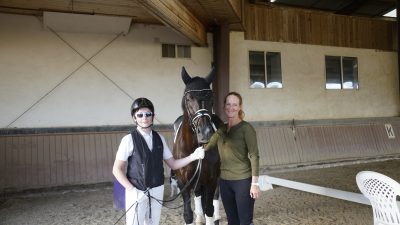
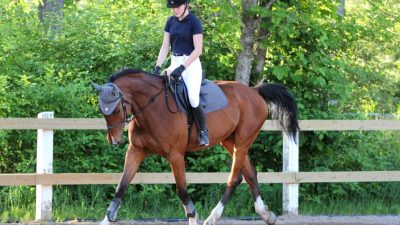









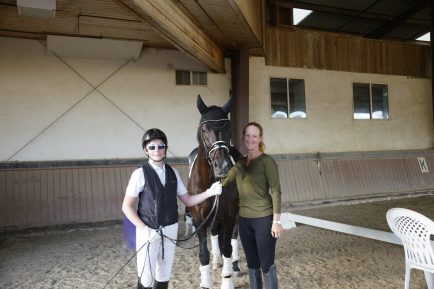
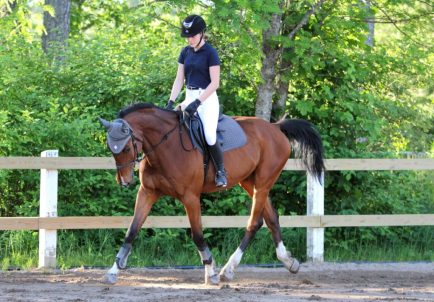
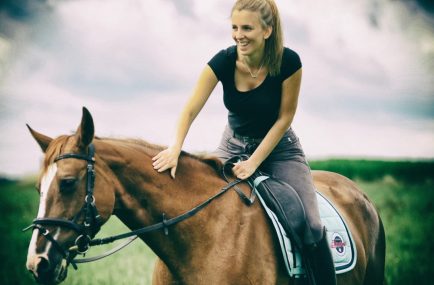
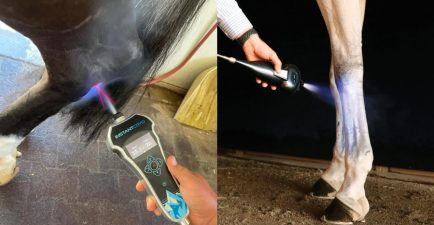
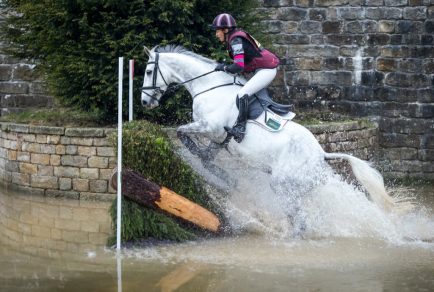
Comments